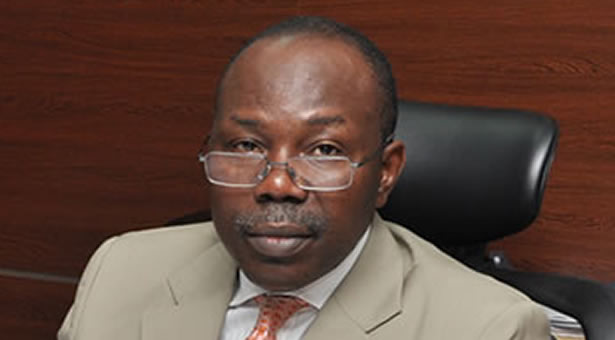By Eric Elezuo
A former Commissioner for Special Duties, Transport, and Environment at various periods in Lagos State, Dr. Muiz Banire, has come hard on the nation’s judiciary, saying that the supposed last hope of the common man has turned to lost hope of the common man in Nigeria.
Dr. Banire his remarks while speaking on Sunday during his weekly leadership discourse on the micro-blogging platform, X (formerly Twitter).
The former Chairman of the Governing Board of the Asset Management Corporation of Nigeria (AMCON), ho himself is a lawyer, noted that judiciary pronouncements nowadays, are not only sounding amazing, but also amusing, stressing that the third arm of government are no longer on the side of the justice, using recent feelers from the election tribunal judgments as case study.
Banire, a member of the ruling All Progressives Congress (APC), observed that “Election petition cases are not only polluting our jurisprudence but contaminating our judicial officers,” and also frowned at the fact that the same “election petition cases have succeeded in further deepening the loss of confidence the people have in the judiciary.”
The accomplished lawyer noted that if he had his way, judges will no longer be used in determining the course of electoral justice, and a new way fashioned to address electoral conflicts.
Below is full text of Banire’s remarks:
Distinguished readers, you are welcome to our weekly leadership discourse. We are in the season of election petition appeals and a lot is going on. #LeadershipTalkDaily
Daily we read about one judgment or the other that sounds not only amazing but at times amusing. Judiciary, as reputed, is the last hope of the common man but as Chidi Odinkalu recently put it, it is gradually becoming the lost hope of the common man.
Ranging from the inability to exit the court upon entry, to injustice, compromise, incompetence, the situation is becoming hopeless.
I have, in the last two decades, engaged myself in the advocacy for the independence of the judiciary and the improvement of the welfare of the judges, simply because of my desire and love for the enthronement of justice. Events unfolding are however becoming frustrating.
Election petition cases have succeeded in further deepening the loss of confidence the people have in the judiciary. If I have my way, I will insist that judges no more get involved in election disputes. We need to fashion a new way of addressing electoral conflicts.
Election petition cases are not only polluting our jurisprudence but contaminating our judicial officers.
Except we want to continue pretending, the impression in the public and the perception of the society on the judiciary is substantially negative, simply because the few of them will not do the proper thing.
There is an exercise going that I stumbled on, the analysis and evaluation of the Court of Appeal decisions on the judgment of tribunals, and the revelation coming out in cases of likes for likes is mind boggling.
As a legal practitioner, the contradictions are huge and appalling, to the extent that no innocent mind can give a pass mark to the court.
If the courts must continue to dabble into electoral disputes, I believe at the appellate level, particularly the Court of Appeal, there is need for consensus on the applicable principles of law.
The haphazard decisions we are witnessing currently are worrisome. It suggests lack of uniform approach to the administration of justice, coupled with the engendering non-predictability of the law.
I am worried and depressed. With respect, I see some warped and irrational decisions in some cases and I truly cried for justice. It seems, to a large extent, that because the court is the final court, no meticulous and detailed attention is being paid to justice.
As a lawyer with conscience, I feel bereaved by the outcomes we are seeing. I and the society seem helpless. We are at the verge of taking our concerns to God, the ultimate judge.
I believe the time is overripe for all stakeholders in the justice system to rise and fundamentally and radically do something about what is going on.
We really need to intervene before the dawn, which is the potential uprising that could consume us all. This is the daunting reality we are facing if we continue to be indifferent.
All leaders of the society must heed the call of John Stuart Mill to speak up otherwise our decaying society will soon collapse. My simple admonition.

 News6 years ago
News6 years ago
 Featured6 years ago
Featured6 years ago
 Boss Picks6 years ago
Boss Picks6 years ago
 Headline6 years ago
Headline6 years ago
 Headline6 years ago
Headline6 years ago
 Headline6 years ago
Headline6 years ago
 Headline6 years ago
Headline6 years ago
 Headline6 years ago
Headline6 years ago













